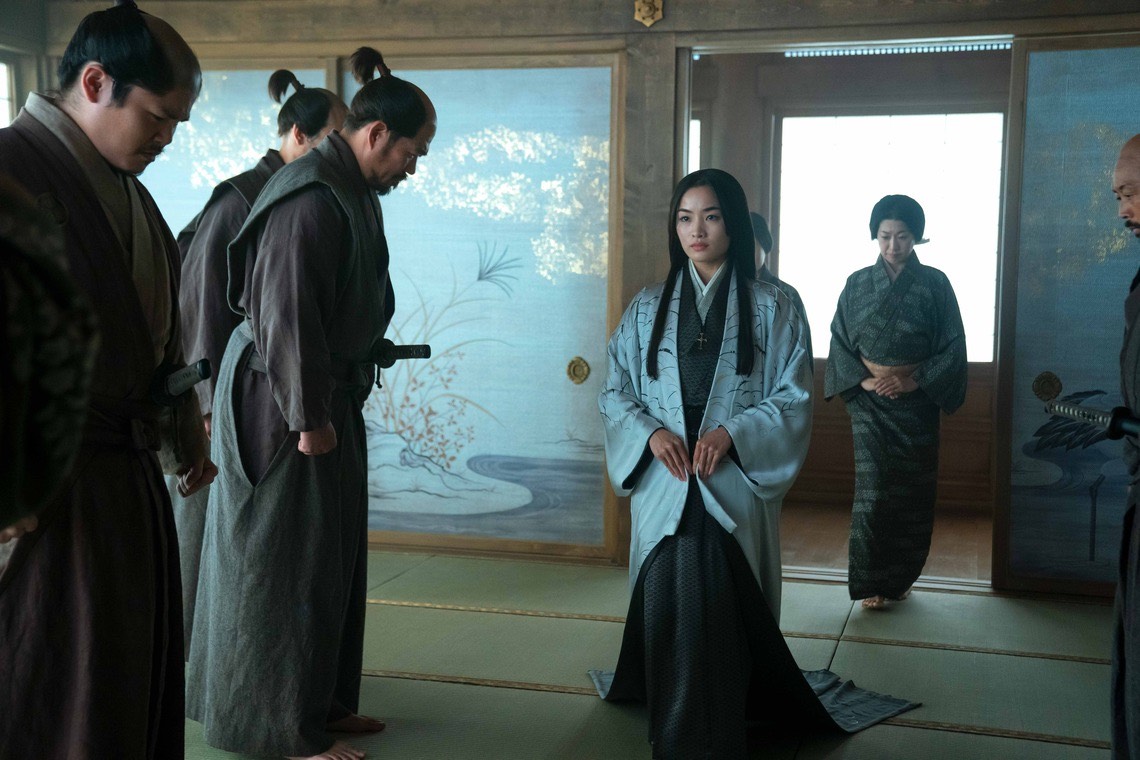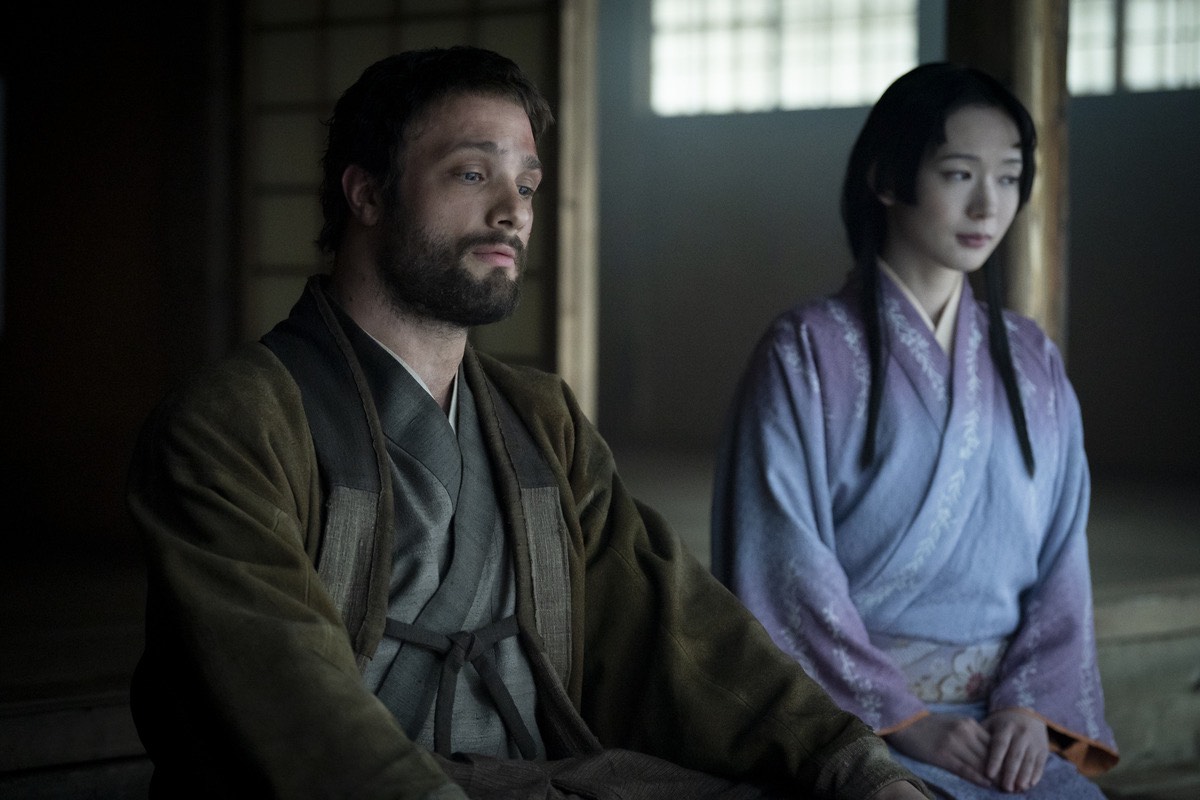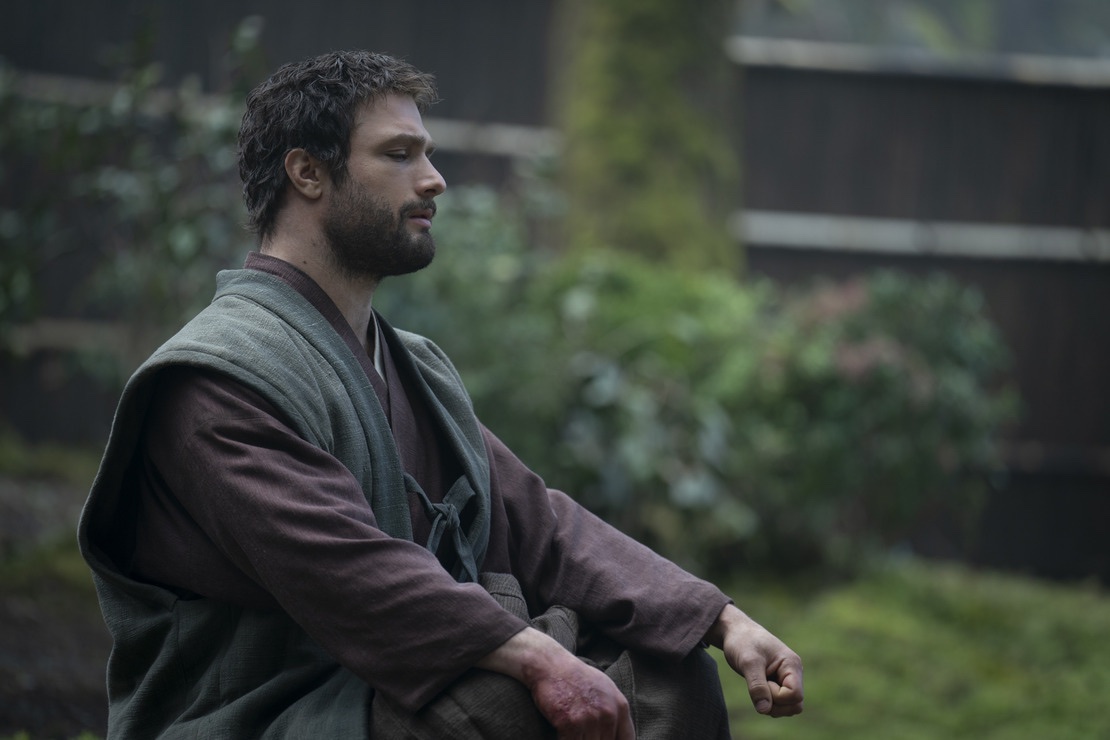REVIEW: FX miniseries 'Shogun' is a must-see historical drama with keen edge
Warning: This review contains spoilers from Shogun.
In Shogun, samurai warriors must both be creative with words as much as they are adept with a sword.
In the first episode of FX’s miniseries, the local warlord Lord Yabushige (Tadanobu Asano) asks his nephew Kashigi Omi (Hiroto Kanai) to compose a poem about the lingering death of one of the Europeans they’d captured, someone they just recently boiled alive.
Despite the brutality of his passing, the poem is a small show of respect to the savage white man’s soul—in the medieval Japanese view, the more sacrificial pain involved, the greater one’s transcendence. “His eyes were just the end of Hell, all pain, articulate,” reluctantly recites the young samurai Omi.
Based on the sprawling 1975 novel by James Clavell, previously adapted into a three-episode series in 1980, showrunners Rachel Kondo and Justin Marks have crafted a sprawling historical drama that keenly depicts a 1600s feudal Japan as it is a sharp telling of a European sailor who stumbles into that strange land.
There are no good or bad guys here, only conflicting interests achieved through various means that really are testament to how Japan, despite the strict codes of honor and protocol, was certainly not a peacable nation back in the day.

The details of historical accuracy—from costume to movement—will be a joy to geek over for any Japan-o-phile. The actor Hiroyuki Sanada (who plays Yoshii Toranaga), also serving as the show’s producer, has stated in interviews that in almost every scene, he made sure to go over every actor’s movement for authenticity.
When the Dutch ship Erasmus washes ashore, its captain dead from suicide, only the English pilot, John Blackthorne, has survived to lead the few who remain from the previous fleet of five ships and 500 men. Blackthorne and the crew, sick from scurvy and starving, has been taken prisoner by agents of the local warlord Yabushige. The foreign sailor is in for the adventure of his life as he is tangled into the machinations of the feuding powers almost from the get-go.
There’s nary a thread out of place or a gesture that doesn’t have a point here, so all production, set design, costuming, script pacing, and even acting are gorgeous, playing on a top notch level of epic for TV streaming. Think beautiful modern pieces akin to The Last Samurai or Rurouni Kenshin.
The acting is particularly notable as depicting all the people in shades of grey sans crushing info dump is always difficult when you have such a textured palimpsest of material like Clavell’s novel.
Of high note are the lead trinity: Cosmo Jarvis (who plays John Blackthorne and was later named Anjin-san), Hiroyuki Sanada (the embattled warlord Toranaga), and Anna Sawai (who plays the translator Lady Toda Mariko, a Catholic convert).
The major cast of women are superb across the board, notably Yuka Kouri as the courtesan Kiku and Moeka Hoshi as Blackthorne’s consort Usami Fuji.

Where the showrunners have excelled is in lassoing the writers room and the episode directors to work in careful concert. The results are amazing, articulating the plot of Clavell’s sprawling book into something tangibly visual, an anti-hero’s journey for the ages.
For example, the inevitable info dumps about the power structures and competing parties for the top of the imperial council are always doled out in digestible bite-sized pieces. Sometimes, they threaten to overwhelm the viewer with too much to process as Game of Thrones did when it initially aired, but they never actually swamp the observant. This is a series that rewards careful watching, sans second screen (so drop your smartphone while bingeing).
The initial setup is that the English pilot John Blackthorne has arrived at a very precarious political age in Japan. The heir to the imperial throne is still a very young boy. Thus the succession for the power behind the heir is being fought over by five council regents. Among them, Lord Toranaga and Lord Ishido are the main rivals.
But there's also the conflict between the Portuguese and the Dutch for trading rights over this “new world,” connected to how the Protestants versus the Catholics are vying for new converts. In fact, the Portuguese Jesuits have already established a foothold in Osaka, as seen by the crosses worn by Lady Mariko, commoners like Muraji, and even council regents like Lord Kiyama.
Add to that the complexity of who is related by blood to whom, and who is politically allied to which Japanese lord can get super confusing. So much so that FX Networks saw fit to release a character and allegiance guide.
Nominally, in the first few episodes, this is the story of Blackthorne and how he becomes the “Blue-Eyed Samurai” in the novel. Through acts of bumbling stupidity and reckless good faith—plus exceptional abilities as a sailor—Blackthorne becomes Anjin-san, succeeding in ingratiating himself into the good graces of Lord Toranaga.

It’s fascinating to watch how high he rises, but Euro sailor Blackthorne going native is only half the story.
Later on, we get to see the deeper half. The power plays, overt and subtle, we see through Lady Mariko's eyes. Not only does Mariko’s tale tackle the brutality and pomp of medieval Japan, it is through her that we grasp the importance of tradition, ceremony, and just how cruel the caste system is—especially to women.
Early on, the Spanish navigator Rodrigues tells Blackthorne about the local concept of “shukumei.” Defined as karma or fate, he translates it as “the life that exists within you.” The hand you are dealt or what you're unable to change in yourself defines the limits of your shukumei. And it is in seeing how masterfully Lady Mariko improves her station with grace and bravery, despite her constraining shukumei, that I think the more nuanced story of Shogun is revealed.
Certainly, the complexities of imperial intrigue are the juiciest side of the story. See Lord Toranaga, whom Mariko is pledged to, embodies the spirit of hidden ambition.
While half the fun is in seeing the friction between the cultural differences, the other half is in how the socio-political conflicts play out, the endgame being a praxis seizure of the imperial throne.
Memes have already spouted in forums about how Shogun is what HBO’s GoT would have been if Ned Stark have been a smart guy instead of a too-honest do-gooder. There’s laughably some truth in that. But I would argue that Shogun has earned the right to stand on its own sea legs, taking on comers, armed with katana and wakizashi, as its only sin is not having a second season so that fans may continue to honor its stunning historical world with their binge time.
All episode of Shogun can now be streamed on Disney+. Watch the trailer below.


